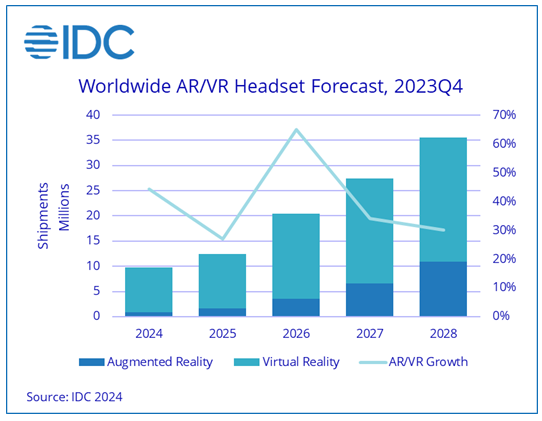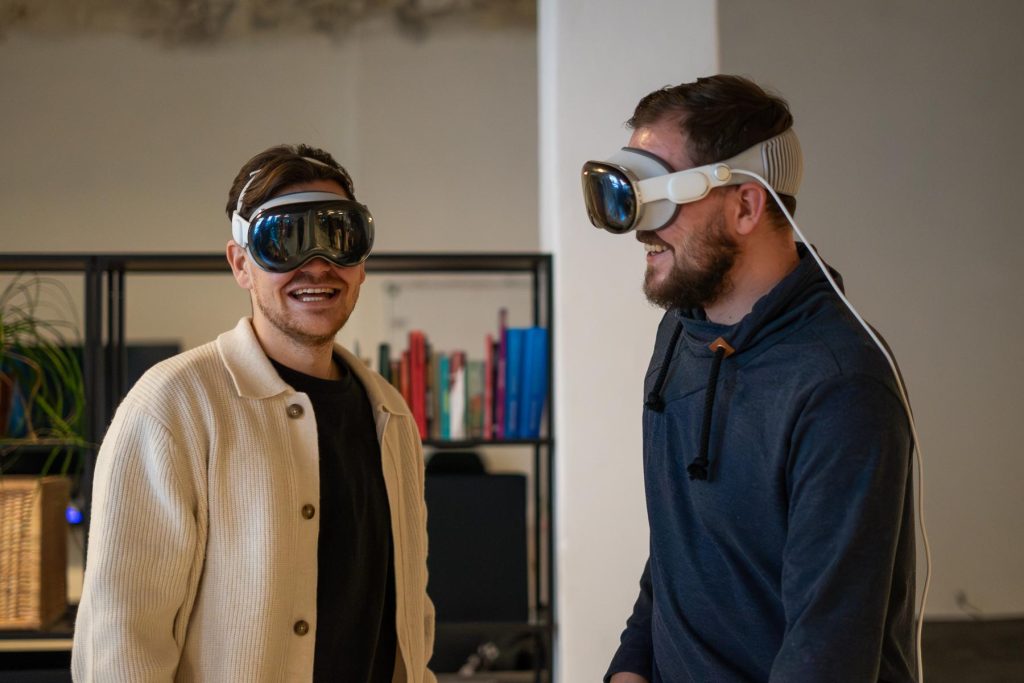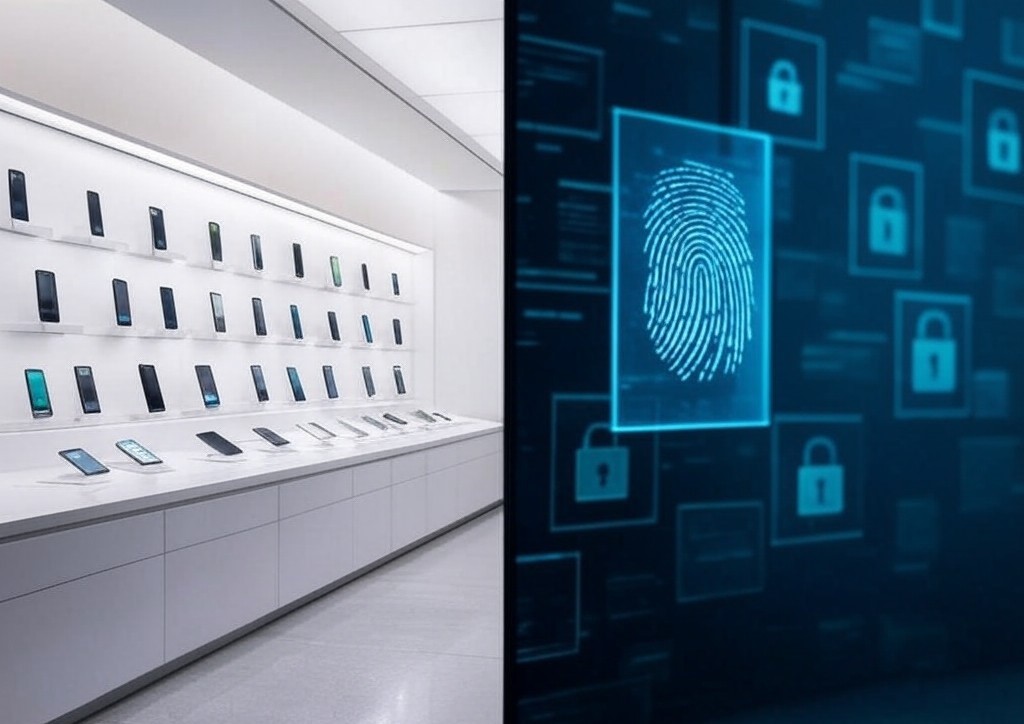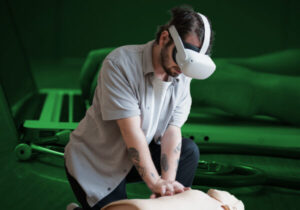Extended Reality (XR) — the collective term for Virtual Reality (VR), Augmented Reality (AR), and Mixed Reality (MR) — is currently driving a technological revolution across various industries. In 2024, generative AI technologies made significant strides in XR development. As a result, businesses can quickly create immersive environments, 3D models, and virtual assets. Tools like OpenAI’s Sora can generate video clips and animations from text prompts, democratizing XR content creation and reducing development time and costs. Consequently, this integration allows companies to prototype faster and adapt to market demands more effectively, enhancing customer engagement and operational efficiency.
In 2024, the XR market reached a valuation of $92.5 billion and is expected to surge to $1.9 trillion by 2032, growing at an annual rate of 39.2%. Moreover, this trend aligns with previous growth, as the XR market hit $29.26 billion in 2022 and is projected to exceed $100 billion by 2026.

Continuous advancements in hardware, strategic partnerships between tech giants, and the integration of Artificial Intelligence (AI) and 5G technology fuel this rapid growth. Notably, 88% of XR companies integrate AI into their solutions, reflecting a trend toward AI-driven personalization and efficiency.
XR offers many opportunities as businesses seek innovative ways to improve efficiency, customer engagement, and competitive advantage. From healthcare simulations to immersive retail experiences, XR transforms how companies operate and connect with their audiences.
Key Technological Advancements in XR for 2024
Apple Vision Pro and Spatial Computing
With its advanced VisionOS operating system, Apple’s Vision Pro is leading the way in spatial computing. Spatial computing blends the physical and digital worlds, allowing users to interact with virtual content intuitively through eye-hand-voice navigation. This innovation enables immersive 3D applications across various industries.
Therefore, Vision Pro’s ability to deliver realistic 3D visualizations makes it a leading device for immersive experiences. Given this, it’s no surprise that 75% of organizations have implemented AI as a core business strategy in 2024.
Key Benefits of Apple Vision Pro:
- Enhanced training simulations for healthcare and manufacturing.
- Immersive retail experiences like virtual try-ons.
- Interactive real estate tours and design visualizations.

Meta Quest 3 and Affordable XR Access
Meta’s Quest 3 headset, powered by the Snapdragon XR2 Gen 2 processor, offers a high-performance XR experience at an affordable price. The Snapdragon XR2 Gen 2 is a specialized chipset designed for extended reality, delivering improved graphics, faster processing speeds, and enhanced battery efficiency. In addition, these advancements make the Quest 3 ideal for gaming and professional use, with capabilities for real-time collaboration tools and interactive training modules. The upcoming Quest 3S model provides a cost-effective option for small and medium-sized businesses (SMEs).
Why Meta Quest 3 is Game-Changing:
- High-performance for gaming and enterprise use.
- Affordable entry-point with the Quest 3S model.
- Supports remote collaboration and immersive training.
The market’s expected CAGR of 58.2%, reaching $457.06 billion by 2030, demonstrates the increased accessibility of XR devices.
Nvidia Omniverse for 3D Collaboration
Nvidia’s Omniverse platform enhances real-time 3D collaboration, making it invaluable for architecture, automotive design, and manufacturing industries. By integrating with XR devices, Omniverse allows geographically dispersed teams to simultaneously work on detailed 3D models. This capability is increasingly powerful, with 50% of manufacturing and 49% of retail business leaders currently using or investing in XR technology.
Key Trends Shaping the XR Market
5G and AI Integration
The adoption of 5G technology enhances XR experiences by providing low-latency, high-speed connectivity. With AI-driven personalization, 5G enables real-time data processing and intelligent content generation. This allows businesses to offer seamless virtual meetings, live product demonstrations, and interactive training sessions without lag or interruptions.
Strategic Tech Partnerships
Collaborations among tech giants like Google, Samsung, and Qualcomm are driving the development of affordable and innovative XR devices. These partnerships aim to accelerate XR adoption in the education, gaming, and productivity sectors.
Challenges and Opportunities for XR in 2025
Affordability and Accessibility
The high cost of premium devices like Apple’s Vision Pro remains a significant hurdle in XR adoption. However, affordability is improving by introducing more cost-effective models, such as Meta’s Quest 3S, specifically designed for SMEs. Additionally, the average price of consumer VR headsets has dropped by 30% over the past five years, making XR more accessible. Innovations like generative AI tools (e.g., OpenAI’s Sora) further reduce costs by enabling faster and cheaper creation of XR content through text-to-3D generation.
- – Cost-effective models and refurbished devices expand accessibility.
- – Generative AI accelerates and lowers the cost of XR content development.
Privacy and Data Security
XR devices collect sensitive data, such as biometric information, spatial mapping, and behavioral interactions, raising privacy concerns. Many users are unaware of the extent of captured data, particularly eye-tracking and spatial data. There’s also the risk of inadvertently collecting data from bystanders in public spaces, leading to ethical and legal challenges. Companies must adopt strong encryption, adaptive permissions, and real-time data anonymization to address these issues.
- – Encryption and privacy-enhancing technologies (PETs) protect user data.
- – Compliance with regulations like the GDPR ensures responsible data handling.
Businesses can confidently leverage XR technologies to drive innovation and engagement in 2025 by improving affordability and addressing privacy challenges.

Embrace the Future of XR with Yord Studio
Ultimately, the XR industry is poised for explosive growth, driven by advancements in AI, 5G, and spatial computing. At YORD Studio, we’re dedicated to helping businesses harness the power of XR to innovate, engage, and thrive. Whether you’re in healthcare, retail, real estate, or event marketing, our XR solutions can transform your operations and customer experiences.
Ready to Transform Your Business with XR?
Partner with YORD Studio to bring XR, VR, and AR solutions to life. Book a free consultation to explore how our expertise can drive your business forward.




